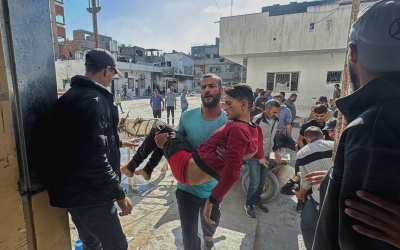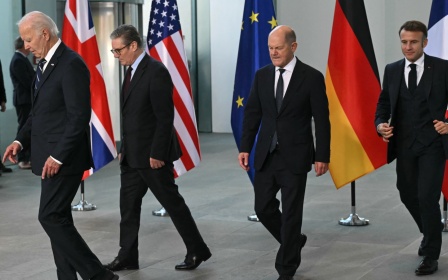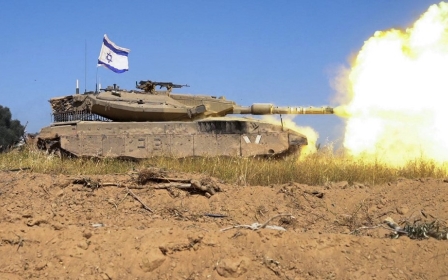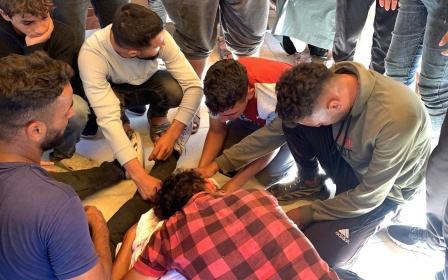Gaza police battle gang members accused of stealing humanitarian aid
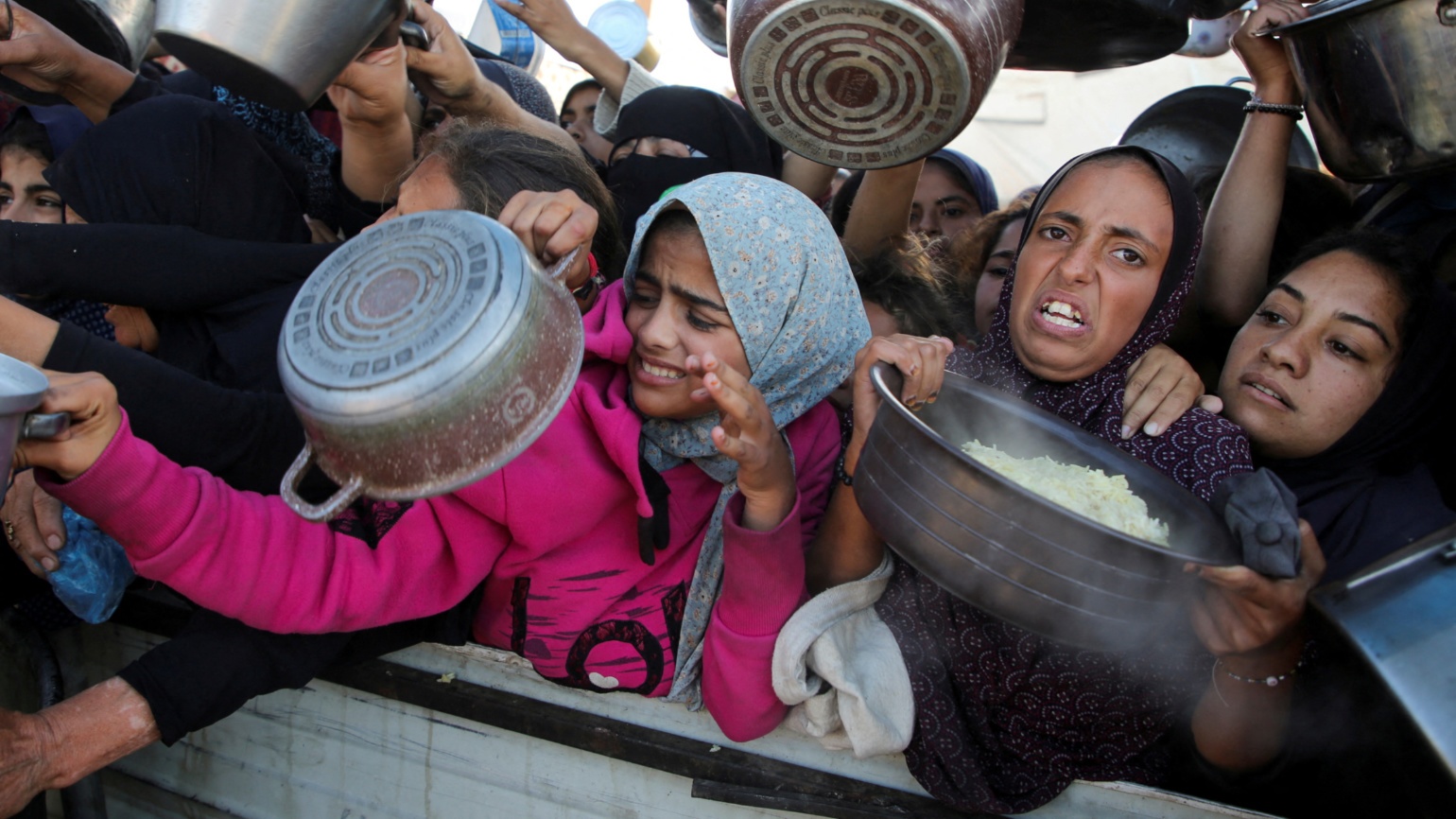
At least 20 gang members accused of stealing humanitarian aid were killed in clashes with Gaza’s police forces on Monday, the Palestinian enclave’s interior ministry said.
In recent weeks, armed men have descended on aid convoys entering southern Gaza, severely hampering relief efforts and leaving Palestinians hungry.
The looting has "severely impacted society and led to signs of famine in southern Gaza”, according to the ministry, who said the police operation was done "in cooperation with tribal committees” and "will not be the last”.
Residents of southern Gaza described the gangs, who appear to operate with implicit Israeli backing, as making their already difficult situation all the more nightmarish.
Ever since the Israeli military shut down Gaza's Rafah crossing with Egypt, Israel has had complete control over what can enter or leave the besieged enclave.
New MEE newsletter: Jerusalem Dispatch
Sign up to get the latest insights and analysis on Israel-Palestine, alongside Turkey Unpacked and other MEE newsletters
Aid groups say Israel has refused to allow anywhere near enough humanitarian assistance into Gaza.
What little does make it through to southern Gaza comes through the Karem Abu Salem (Kerem Shalom) crossing, which leads to an area where powerful Bedouin families, some of which are involved in armed gangs, hold significant sway.
These areas are now under Israeli military control, yet Palestinians have said the gangs have been able to loot any aid trucks with impunity until the Gaza police stepped in on Monday.
Gaza’s interior ministry said its operation was “the beginning of a broad security campaign that has been long planned and will expand to include everyone involved in the theft of aid trucks”.
An internal UN memo obtained by the Washington Post concluded in October that the gangs “may be benefiting from a passive if not active benevolence” or “protection” from the Israeli army.
The memo said that one gang leader established a “military like compound” in an area “restricted, controlled and patrolled" by the Israeli army.
On Saturday alone, 98 out of 109 trucks carrying UN food aid from Kerem Shalom were ransacked by armed men.
While some Palestinians have attempted to loot trucks in the past, largely due to hunger or desperation, these organised attacks have made the situation a lot more dangerous.
With the collapse of civil order due to Israel’s targeting and killing of members of Gaza’s police force, few people are left to guard humanitarian aid convoys.
Aid organisations say Israel has denied most of their requests for better measures to ensure the safety of convoys. As the occupying force, Israel is legally responsible for ensuring aid supplies to civilian populations.
For weeks, aid workers have raised fears of the famine-like conditions in northern Gaza, where the Israeli army is waging a brutal campaign to clear the area of its inhabitants.
However, recently little aid has managed to reach the south as well, despite most of Gaza's 2 million population currently residing there.
Only 57 trucks a day were allowed to cross into Gaza in October, far lower than the 350 the US had requested, and the 600 a day aid agencies say are required to meet basic needs. Meanwhile, food prices have skyrocketed.
‘Worse than the Israelis’
The gangs are believed to be rivals of Hamas. Palestinians speaking to Middle East Eye have expressed hope that the movement, along with Gaza’s police forces, can continue to clamp down on them.
“We are against these thieves, let [the authorities] rid us of them,” Sulaiman Mshahne, a vendor in Khan Younis, told MEE.
“These thieves starved us. A bag of flour is now 500 shekels [$133], and we cannot get it. People are selling themselves to get food for their children because of these thieves.”
'How are these gangs benefiting from this? Aside from the destruction of the Palestinian people'
- Mohammed, Gaza resident
Prices for all goods have ballooned ever since the gang's activities increased.
“I cannot bring cucumbers, potatoes or tomatoes for my children,” Mshahne said. “Prices are unbelievable. These thieves, road blockers, are worse than the occupiers for us. Worse than the Israelis.”
Samir al-Faqaawi, a 24-year-old father of two, said that police operations like the one carried out on Monday can serve as a deterrent.
“At least now the trucks can pass safely,” he said. “Those who died will be a lesson for those after them. They will not dare now.”
Faqaawi said prices for a simple lunch of beans and bread for him and his wife has risen from five shekels ($.1.33) to 18 ($4.8) after the gangs began their looting. As he only makes 20 shekels a day, Faqaawi can only afford a single meal for them both.
Similarly, another Palestinian in southern Gaza, Mohammed, has to spend 100 shekels a day to provide for his four children. He said the gangs “destroyed us”.
“What are they benefiting from this? Aside from the destruction of the Palestinian people,” he said.
By Tuesday, it appeared that the flow of aid may have increased.
Hisham, another vendor in Khan Younis, said 19 trucks reached his neighbourhood without an issue following the police’s anti-gangs offensive. MEE could not verify this claim.
Middle East Eye delivers independent and unrivalled coverage and analysis of the Middle East, North Africa and beyond. To learn more about republishing this content and the associated fees, please fill out this form. More about MEE can be found here.


